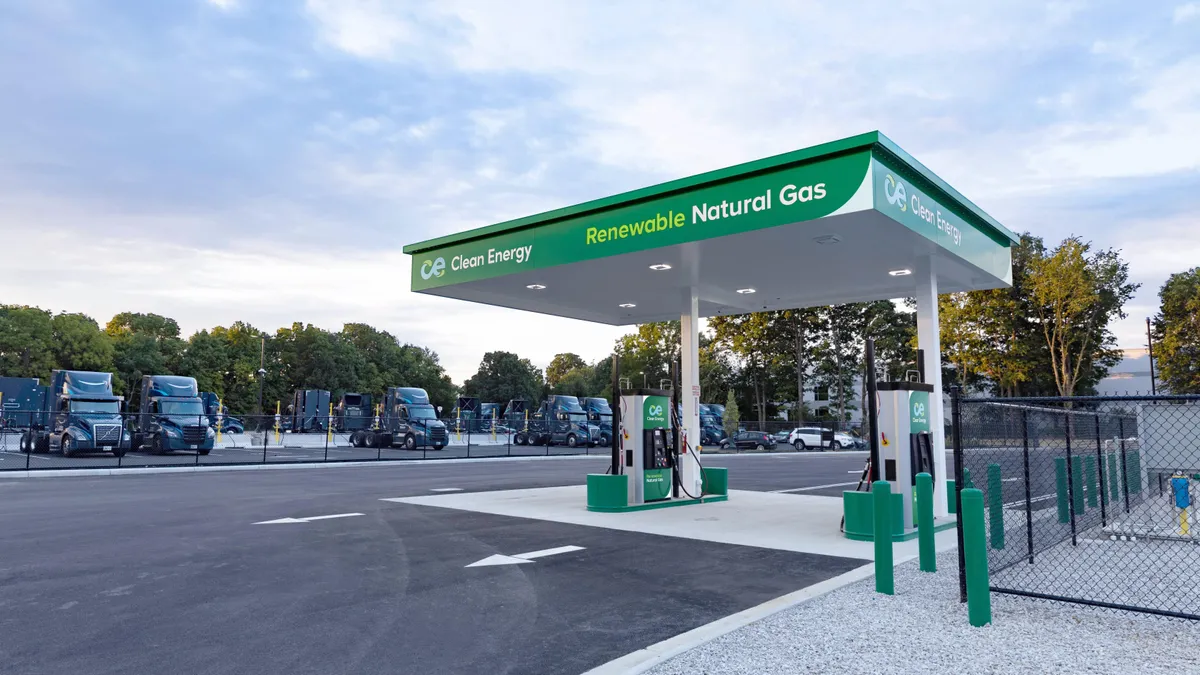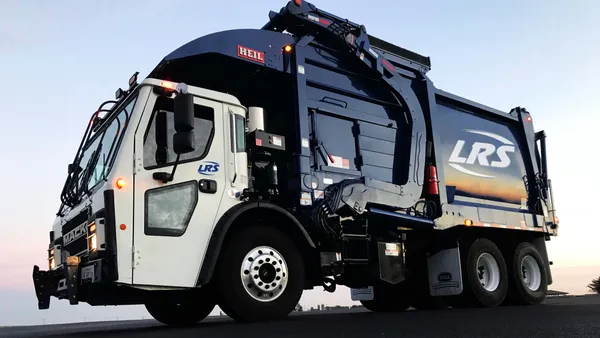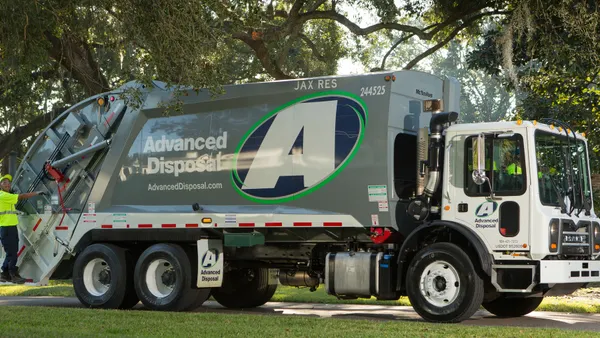Dive Brief:
- The Transport Project, an industry group that represents companies that sell, operate and fuel natural gas vehicles, is suing the EPA over the agency’s latest heavy-duty truck emissions rule, the group announced Monday.
- The group argues EPA's March update to emissions standards last set in 2016 provides strong incentives for electric vehicles but not natural gas-fueled vehicles. It says such vehicles should receive similarly strong incentives because they're considered to have negative carbon intensity when they're fueled by renewable natural gas.
- WM is one of roughly 200 members of the The Transport Project. Others include RNG companies like Clean Energy Fuels and Opal Fuels as well as refuse vehicle manufacturers like McNeilus, Heil Environmental/Environmental Solutions Group, Cummins and Volvo Group North America, which manufactures Mack Trucks.
Dive Insight:
The final Phase 3 rule for medium- and heavy-duty emissions standards directs manufacturers to shift to zero-emission vehicles on a faster timeline than the 2016 version did. The update is part of the Biden administration's Clean Trucks Plan, which include a series of actions to address emissions.
The new rule required certain kinds of heavy-duty vehicles to comply with more stringent carbon dioxide emissions limits beginning in model year 2027, with those limits becoming tighter over time. It sets limits through model year 2032 for a variety of vehicle construction subcategories, including for certain kinds of refuse haulers. The EPA estimates the new standards would save 1 billion tons of greenhouse gas emissions, or 13 million tanker trucks' worth of gasoline.
The EPA was explicit in its support for a transition toward battery-electric vehicles, arguing the technology is coming down in price and its capabilities are increasing. In its justification for the rule, the agency cited a study commissioned by the Environmental Defense Fund which found that battery-electric refuse vehicles could cost less upfront than comparable internal combustion engine vehicles as soon as model year 2027, thanks in part to government subsidies created through the Inflation Reduction Act and other means.
The Transport Project claims 60% of new refuse truck orders are for natural gas-powered vehicles. The technology has become increasingly attractive to waste companies that own landfills since they can collect biogas, refine it into RNG and use that fuel to power their collection fleets.
The final EPA rule "unfairly and capriciously manipulates outcomes to advance favored technologies," Jeffrey Clarke, vice president of government and regulatory affairs and general counsel for The Transport Project, said in a statement.
"Instead of accelerating the pace of all clean vehicle technology development and reducing greenhouse gas emissions and other harmful pollutants, this regulatory action would slow that progress by discouraging fleets from continuing the phase-in of more natural gas-fueled trucks and accelerating more RNG use," he said.
Clarke said his group has engaged with the EPA in drafting the rule, but argued the agency ultimately failed to recognize the emissions reductions associated with renewable biofuels like RNG. The Transport Project said it filed a petition with the EPA for reconsideration of the rule in addition to its petition to review filed with the D.C. Circuit Court of Appeals.
"We therefore take this step to provide the EPA another opportunity to correct this fatal error in its rule, or alternatively, to ensure the Courts require EPA to evaluate all facts and address every submission before the Agency," Clarke said.












